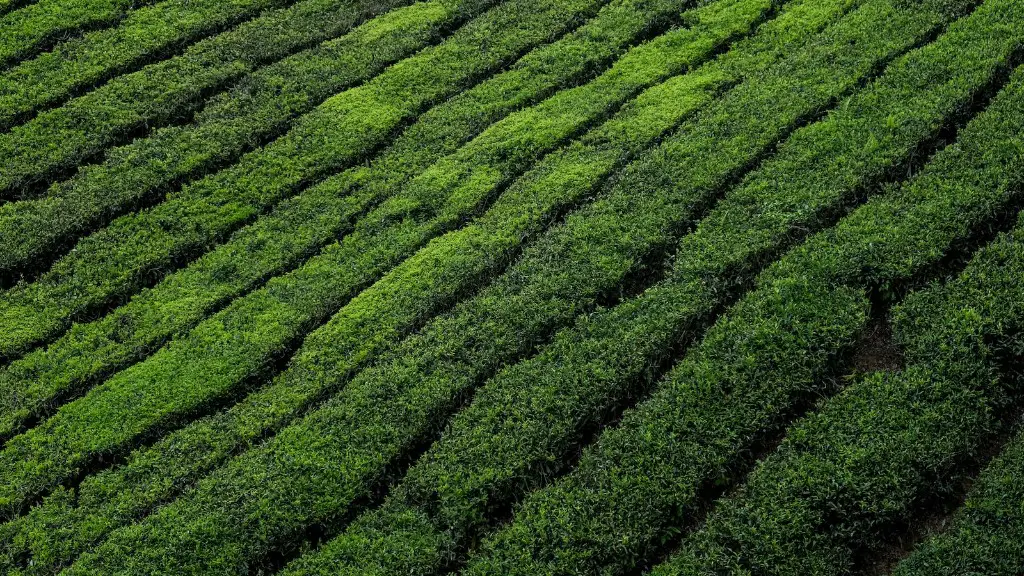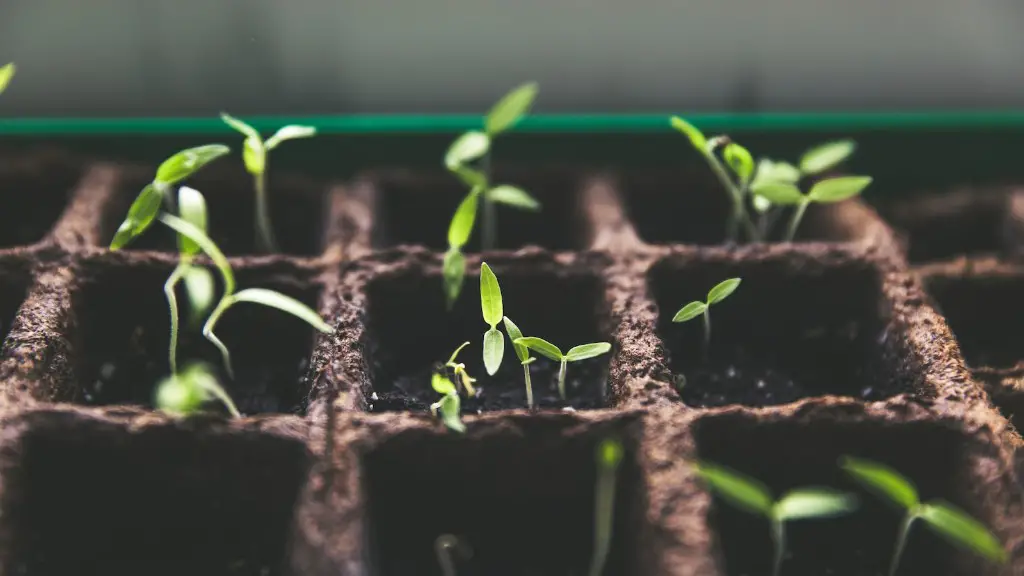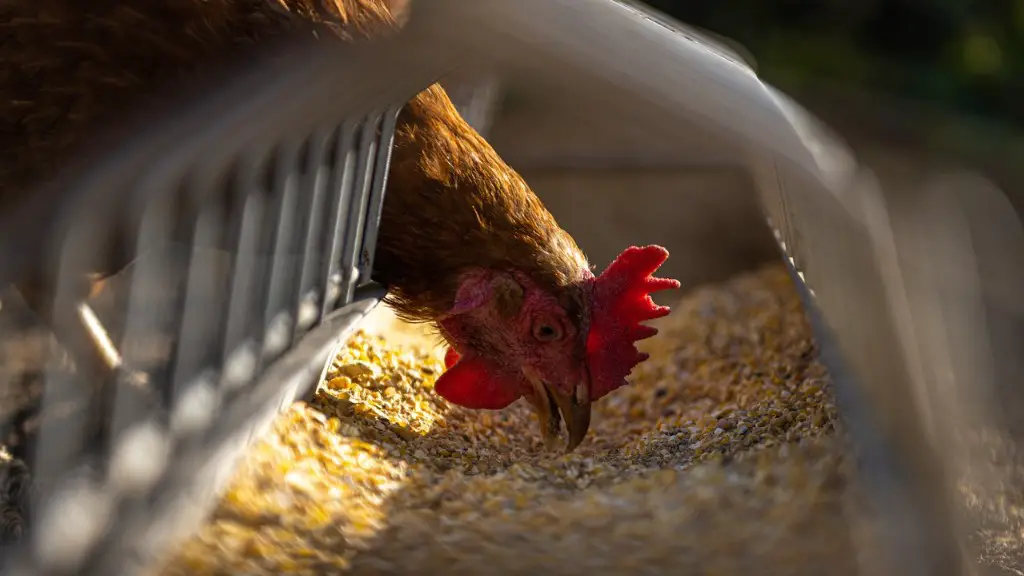The industrial revolution was a pivotal point in human history. It marked a massive shift in the way that people lived and worked, and it was powered by advances in technology and agriculture. Agriculture was key to the industrial revolution because it provided the food that was needed to sustain the growing population, as well as the raw materials that were used to produce many of the new products that were being created.
Agriculture was so important during the industrial revolution because it allowed for a greater food supply which in turn allowed for a greater population. With a larger population, there was a greater demand for goods and services which spurred the need for industry.
Why was agriculture important in the Industrial Revolution?
The agricultural revolution led to the industrial revolution by making it possible to produce food more efficiently. This allowed for the development of new technologies and the growth of cities.
Agriculture is a vital industry that employs a large number of people and generates a significant amount of food and revenue each year. Pasture and cropland play a significant role in the world, providing habitat and food for many different species of animals and plants.
How was agriculture impacted in the Industrial Revolution
New technology has allowed farmers to work larger areas of land with less labor. Government policies have encouraged farmers to scale up their operations. Farmers have also been motivated by economies of scale—the economic advantage of producing larger numbers of products.
The British Agricultural Revolution, or Second Agricultural Revolution, saw an unprecedented increase in agricultural production in Britain arising from increases in labour and land productivity between the mid-17th and late 19th centuries. This increase in productivity allowed for a greater population to be supported by agriculture, and led to a decline in the importance of agriculture in the British economy.
Why was agriculture considered the most important?
Agriculture is one of the most important factors in the growth of cities and civilizations. By farming crops and animals, we are able to meet the demands of a growing population. Today, the global population is over seven billion people. Without agriculture, we would not be able to support such a large population.
Industrial agriculture is a type of farming that uses modern technology and equipment to process meat, eggs, milk, crops, and other food items in a quick and efficient way. This type of farming reduces overhead expenses while earning more revenue and profits, and in turn, lowers food costs.
What are the impact of agriculture on industry?
There are many benefits to using industrial agricultural techniques. They can help lower business costs, increase food production, improve local and national economies, encourage technological development and create employment opportunities. This makes them a popular choice for many farmers and food producers.
The Industrial Revolution was a period of time in the late 18th and early 19th centuries when there was a dramatic shift from an agrarian economy to a manufacturing economy. This shift was caused by a number of factors, including the invention of new machines that could mass-produce goods, the introduction of new methods of production, and the growth of urban areas. This led to increased production and efficiency, lower prices, more goods, improved wages, and migration from rural areas to urban areas.
What was the main impact of the Agricultural Revolution
The agricultural revolution was a pivotal moment in human history. It marked a major change in the way humans lived, and its effects are still felt today. The agricultural revolution had a variety of consequences for humans. It has been linked to everything from societal inequality—a result of humans’ increased dependence on the land and fears of scarcity—to a decline in nutrition and a rise in infectious diseases contracted from domesticated animals. The agricultural revolution was a major turning point in human history, and its effects are still being felt today.
The Agricultural Revolution led to a lot of experimentation with new crops and new methods of crop rotation. These new farming techniques allowed soil to replenish nutrients, leading to stronger crops and better agricultural output. Advancements in irrigation and drainage further increased productivity.
What was the most important outcome of the Agricultural Revolution?
The Agricultural Revolution saw a major increase in agricultural output due to the introduction of new farming techniques, such as crop rotation. The Norfolk four-course rotation, which involved turnips and clover, was a major development during this time. This system allowed for a more efficient use of land and improved crop yields.
Agriculture is the backbone of many industries as it provides them with raw materials that are used in the manufacturing process. Without the agricultural sector, many industries would not be able to operate. This is why the agricultural sector is of primary importance for the growth of industrial sector in the economy.
Why was agriculture more successful
The substantial increase in total agricultural production can be attributed to the advent of new technologies, innovations, and process improvements in the farm sector. The application of new technologies has helped farmers to increase their productivity and to achieve better yields. In addition, innovations in agricultural practices have also contributed to the increase in agricultural production. Process improvements in the farm sector have helped to reduce the cost of production and to improve the quality of agricultural products.
Agricultural production is a vital component of the US economy, accounting for a significant share of GDP. In 2021, the sector contributed roughly $1264 trillion to GDP, accounting for 54 percent of the total. The output of America’s farms contributed $1647 billion of this sum, representing around 7 percent of GDP. The sector plays a vital role in providing food and other essential products for the country, and supporting the livelihoods of farmers and other workers in the industry. In recent years, the sector has faced challenges from volatile weather patterns and changing consumer preferences, but has remained a key part of the US economy.
What are the major goals of industrial agriculture?
Agricultural employees who engage in industrial farming use modern technology to facilitate the rapid growth of plants and livestock. The main goal of industrial farming is to increase the amount of food that farmers produce for every unit of land they manage. This type of farming often uses large scale methods to achieve its productivity goals, such as pesticides, herbicides, and monoculture planting. Although industrial farming can be very effective in increasing food production, it can also have negative environmental impacts, such as soil degradation and water pollution.
The development of agriculture is called a revolution because it has had such a radical impact on human society throughout history. Agriculture has allowed for the invention of cities, the growth of the population, and the rise of industry.
Final Words
Agriculture was so important during the industrial revolution because it allowed for a consistent and reliable food supply. This was crucial for the growing population and for the new factories and businesses that were springing up. Without a steady supply of food, the industrial revolution would not have been possible.
agriculture was so important during the industrial revolution because it allowed for a surplus of food to be produced, which allowed for the population to grow and for cities to develop. Agriculture also allowed for the development of new technologies that made production more efficient and allowed for the transport of goods to market.




